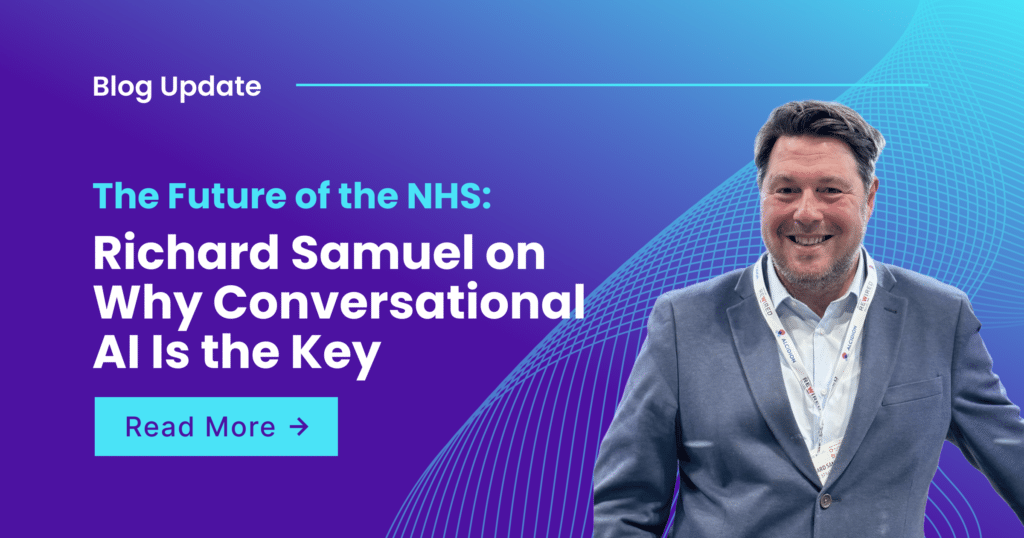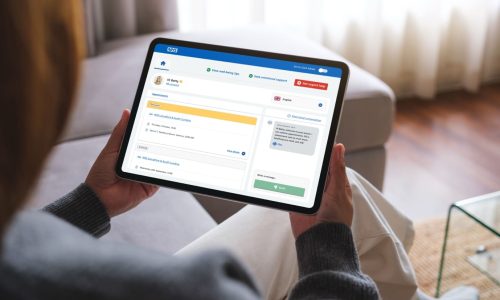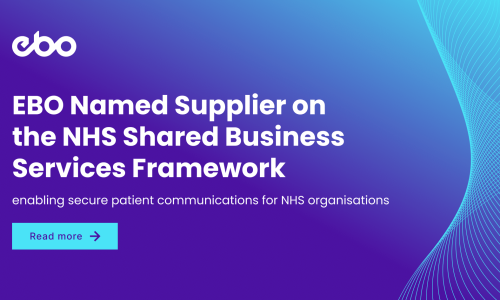As featured on Digital Health, former NHS England Director and now EBO’s Director of Healthcare Strategy, Richard Samuel explains why he believes AI is the key to making digital interactions more efficient, human and personalised.

With over 25 years in NHS leadership, EBO’s Director of Healthcare Strategy, Richard Samuel, brings a wealth of experience to the intersection of technology and empathy. His vision is clear: to use conversational AI to enhance patient engagement, improve the quality of patient responses, and streamline NHS operations.
A Shift Towards Human-Centred AI
Richard Samuel emphasises that the goal of integrating AI into healthcare isn’t to replace human interaction but to enhance it. He notes that while there’s a rush to automate processes, it’s crucial to maintain the human touch that fosters understanding and engagement. EBO’s approach to conversational AI focuses on creating personalised, empathetic interactions that resonate with patients.
By keeping engagements personal—such as using a patient’s preferred language or remembering prior conversations—EBO’s AI systems are able to foster trust and satisfaction.

AI that Saves Time and Money
Richard’s passion for EBO’s approach stems from how it balances innovation with practicality.
“We’re living in a time when the NHS needs solutions that don’t just cut costs but actually add value. EBO’s technology not only enhances patient engagement but also helps save time and money by automating repetitive tasks and reducing administrative burden,” Richard explains.
He believes that understanding where to augment existing processes and where automation can truly drive efficiency is a rare skill. EBO’s AI systems integrate seamlessly with existing NHS infrastructure, ensuring that new technologies complement, rather than replace, critical processes.
The Power of Behavioural Science
“I’ve often heard organisations claim that patients don’t want to engage with virtual agents. But in my experience, people want their problems solved quickly and efficiently. EBO’s next-generation virtual agents are designed with this in mind—they’re a game-changer for patients,” Richard says.
What sets EBO apart, according to Richard, is its grounding in behavioural science. EBO’s solutions leverage insights from behavioural psychology to understand and predict how patients engage with their care. By applying principles like nudge theory, EBO’s AI helps guide patients toward healthier choices and more proactive engagement with their healthcare.
Interoperability + NHS
Richard’s deep knowledge of the NHS has shaped his view of AI’s potential to improve the system. He stresses the importance of interoperability, ensuring that AI tools work smoothly with existing NHS infrastructure to deliver the most value. He also believes that automating administrative tasks can free up NHS staff to focus on more complex, patient-facing activities, ultimately improving both efficiency and quality of care.
His experience managing healthcare services has also shown him the pitfalls of poorly implemented digital solutions. “When automation falls short, clinical or admin staff are forced to pick up the slack. It’s frustrating and time-consuming, and it undermines trust in digital solutions,” Richard warns.
A Collaborative Future
EBO is committed to working with existing clinical suppliers to define objectives and identify behavioural barriers, ensuring that conversational AI interventions are effectively piloted, evaluated, and refined.
“I want to contribute to improving both the efficiency and the quality of care provided by the NHS,” he explains. “Conversational AI, when executed as well as EBO does, will play a pivotal role in this improvement journey.”
Richard’s transition to EBO reflects his commitment to making healthcare better for both patients and providers. By using AI to humanise interactions, he believes that healthcare systems worldwide can build stronger, more engaged relationships with their patients—ultimately driving better outcomes.
Get your starter guide to conversational AI for healthcare today!
- Redefine Patient Engagement
- Build Meaningful Relationships
- Enhance Patient Access


